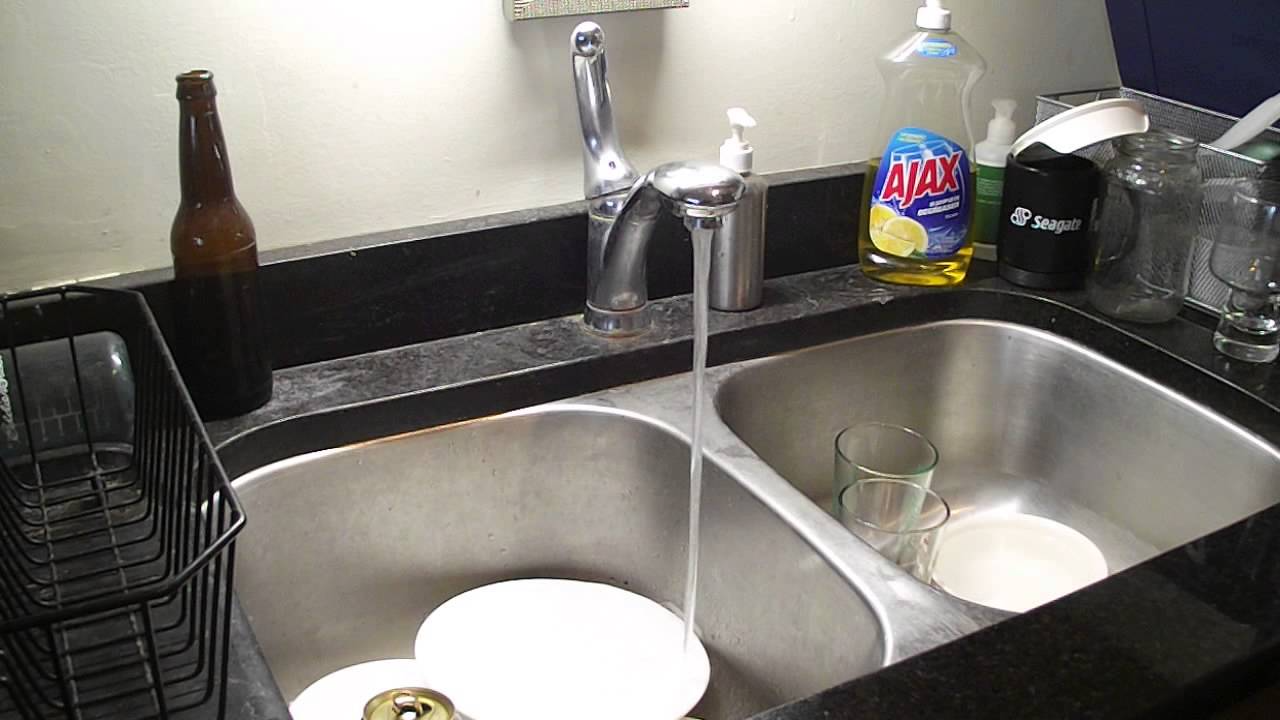Kitchen sink drain clogs are one of the most common and most frustrating plumbing problems. Without a functional kitchen sink, it is virtually impossible to use your kitchen at all—you can’t wash dishes, which basically means you can’t cook anything in your kitchen until your sink is unclogged.
Although kitchen sink drain clogs are very common, they are also preventable in many cases. There are many causes of kitchen sink drain clogs—in fact, most drain clogs in your kitchen sink are caused by things you intentionally put down the drain.
Knowing some of the most common causes of kitchen sink drain clogs can help you think twice before you willingly put certain things down your kitchen sink’s drain. Keep reading to learn more about some of the most common culprits behind kitchen sink drain clogs.
Oil and Grease
Oil and grease can build up over time in the pipes underneath the drain of your kitchen sink. It might seem harmless to pour oil or grease down your kitchen sink drain when it is in its liquid form after being heated while cooking. However, oil and grease can build up along the walls of the pipe underneath your kitchen sink’s drain over time and attract food particles. These food particles stuck in oil or grease can cause your kitchen sink’s drain to clog.
Some types of oil and grease—such as melted butter, coconut oil, and bacon grease—are more harmful than others because they transform into solids after they are cooled. They can accumulate in their solid form inside the pipe underneath your kitchen sink drain and cause the drain to clog even if no food particles become attached to them.
Instead of pouring oil and grease down your kitchen sink’s drain, pour it into a disposable container—like an old plastic water bottle—and allow the oil or grease to cool and solidify inside the container before throwing the entire closed container into your trash can. Throwing oil or grease directly into your trash can attract insects and rodents, and oil and grease can even be considered hazardous toxic waste that needs to be disposed of accordingly.
Even small amounts of oil and grease that go down your kitchen sink’s drain when you wash frying pans can build up over time and cause a clog. Before you wash a frying pan with oily residue on it, wipe down the pan with a dry paper towel to remove any oil from it before washing it. Seal the paper towel into a plastic bag before throwing it away for proper disposal.
Soap Scum
When you wash dishes or your hands in your kitchen sink, soap obviously goes down the sink’s drain. Soap might seem harmless, but it can build up over time in the pipe underneath your kitchen sink’s drain and harden into solidified soap scum that clogs your kitchen sink drain.
You can help prevent the accumulation of soap scum under your kitchen sink’s drain by using soap as sparingly as possible. Most people use too much soap when washing their hands or washing dishes—only a small amount of soap is actually needed to effectively wash bacteria off of dishes and your hands.
After you pour soap down your kitchen sink’s drain, let hot water run down the drain after the soap for several seconds. This helps rinse the soap all the way down through the pipe underneath your kitchen sink’s drain before the soap accumulates into potentially drain-clogging hardened soap scum.
Food Scraps
Even if you have a garbage disposal, putting the wrong food scraps down your kitchen sink’s drain can cause the drain to clog. Drain-clogging food scraps that you should avoid putting into your garbage disposal include—but are not limited to—pasta, rice, stringy fruits and vegetables, fruit and vegetable peels, coffee grounds, eggshells, and more.

avoid putting eggshells down the drain
If you don’t have a garbage disposal, make sure to always keep a drain strainer in your kitchen sink’s drain. Drain strainers cover your kitchen sink drain and allow soap and water to pass through their small holes while filtering out large food scraps. These strainers are very inexpensive and can save you a significant amount of money that you otherwise might have had to spend on getting your kitchen sink’s drain unclogged.
Keep in mind that very small but potentially drain-clogging food scraps such as grains of rice might still be able to make it through the tiny holes in your drain strainer. Having a drain strainer over your kitchen sink’s drain is not a foolproof way to prevent potentially drain-clogging food scraps from going down the drain—it is important to still be careful when pouring food scraps into your kitchen sink, even if you have a drain strainer over the sink drain.


